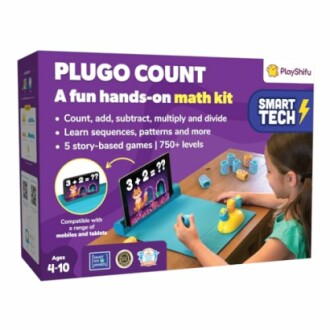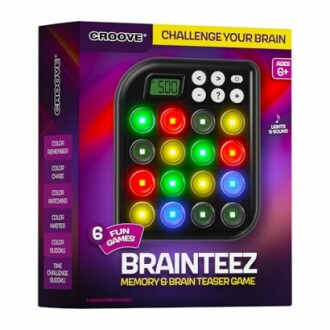
The Rise of Educational Games in Family Gaming
- Educational games are increasingly popular among families.
- Titles like Plugo Count offer engaging, interactive learning experiences.
- These games help children enhance critical thinking, problem-solving, and teamwork skills.
In recent years, educational games have been making waves in the world of family gaming. Parents are discovering that they can provide their children with fun and engaging ways to learn crucial skills while playing video games. As technology continues to evolve, games have adapted to incorporate educational elements, making them not only entertaining but also beneficial for child development. In this article, we will explore the rise of educational games, focusing on popular titles like Plugo Count, and how these products enhance learning while ensuring a pleasurable gaming experience.
The Evolution of Educational Games
Once considered a niche market, educational games have transformed significantly. They now feature captivating graphics, exciting gameplay, and age-appropriate challenges that keep children engaged. This evolution has made them valuable tools for parents seeking to inspire learning. The increase in screen time has led to a demand for content that keeps kids both entertained and educated.
What Are Educational Games?
Educational games are designed with the purpose of teaching specific skills or concepts. By combining learning with play, they offer a unique approach to education. Below are some common attributes of educational games:
- Interactive Learning: Players are motivated to solve problems and think critically.
- Variety of Subjects: Educational games can cover everything from math and science to language arts and social studies.
- Engagement: The fun gameplay elements keep kids coming back for more.
Popular Educational Games for Families
Now that we have examined the growing trend of educational games, let’s dive into some popular titles that families are loving.
| Product Name | Target Age Group | Key Features | Link |
|---|---|---|---|
PlayShifu Plugo CountAn educational math toy that combines interactive gameplay with learning challenges for ages 4-8. Perfect for developing math skills! More Details |
4 to 8 | Interactive math games, story-based learning, and customizable difficulty levels. | Learn More |
Handheld Gaming ConsoleIncludes 138 classic mini-games, designed to be educational and entertaining for children aged 4-10. See Product |
4 to 10 | Rechargeable, large screen, supports TV output, preloaded classic games. | Learn More |
BrainTeez Memory GameChallenges kids with 6 engaging games that elevate critical thinking and memory skills, designed for ages 6-12. Explore Now |
6 to 12 | 6 engaging games, enhances coordination and problem-solving skills. | Learn More |
Benefits of Educational Games for Families
Educational games offer numerous advantages for families looking to merge fun with learning. These benefits include:
- Enhancing Learning: They provide interactive ways to grasp complex concepts.
- Improving Concentration: Many games require focus and persistence, critical skills for education.
- Encouraging Teamwork: Multiplayer options can foster collaboration and social skills.
Tips for Choosing the Right Educational Game
- Choose games that align with your child’s interests.
- Look for age-appropriate levels of difficulty.
- Check for reviews and recommendations from other parents.
- Consider games that offer multiplayer options for family play.
- Test the educational value—ensure it promotes critical thinking and skill development.
Conclusion
With the rise of educational games, families now have a wealth of options to enhance their gaming experiences while benefiting their children’s learning. Titles like Plugo Count and others continue to show that gaming doesn’t have to be just entertainment; it can also be a powerful learning tool. As we navigate this evolving landscape of gaming, embracing educational games could transform family gaming nights into enriching experiences.
For more insights into family-friendly gaming, explore our resources on family gaming consoles, educational video games, and family gaming for all ages.


